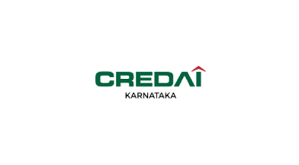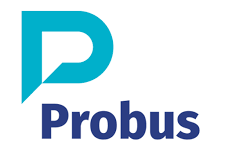The Dharavi Redevelopment Project (DRP) stands as one of the most ambitious urban renewal endeavors in India, with the goal of transforming Dharavi, one of the largest and most densely populated informal settlements in the world.
Located across 590 acres in the heart of Mumbai, Dharavi has developed over decades into a complex mix of informal housing, small industries, and diverse communities, often hailed as a thriving micro-economy despite its notorious overcrowding and lack of basic services.
A Historic Struggle for Transformation
Initially a fishing village, Dharavi’s rapid transformation began in the late 19th century, as migrants flocked to Mumbai seeking employment in the burgeoning industrial economy. Over time, it evolved into a sprawling slum that now houses almost a million residents, many of whom live in makeshift homes and operate small businesses under challenging conditions.
Despite its significant role in Mumbai’s economy, the area remains plagued by inadequate infrastructure, limited sanitation, and a severe shortage of basic amenities, which have compounded the hardships faced by its residents.
Years of Stagnation
The Dharavi Redevelopment Project was first proposed in 2004 with the lofty aim of providing modern housing, upgraded sanitation, and better infrastructure for its residents. However, the project has faced nearly two decades of delays, with each new government administration introducing changes that created uncertainty.
Political disagreements, financing challenges, and complex property rights issues have continuously stymied progress, leading to a cycle of false starts. Even in 2018, under the Uddhav Thackeray-led government, efforts to kickstart the project were marred by further delays and indecision, including the cancellation of a crucial contract with Dubai-based Seclink Technologies Corporation.
A New Push for Redevelopment
Under the leadership of the Mahayuti government, led by Devendra Fadnavis and Eknath Shinde, the Dharavi redevelopment project has seen a renewed focus. With a restructured bidding process and an aggressive push for land acquisition, the project has gained significant momentum since 2022.
The restructured approach prioritizes financial stability and technical capability in selecting developers, with Adani Group emerging as the winner after submitting the most competitive bid. The group’s proposal includes an initial Rs 5,069 crore investment for the first phase of the project, with an estimated total cost of over Rs 20,000 crore.
Collaborative Efforts and Strategic Planning
The formation of a Special Purpose Vehicle (SPV) in September 2023 marked a significant step forward. This entity, consisting of representatives from the state government and Adani Group, will oversee the execution of the project. The SPV aims to streamline the redevelopment process and ensure accountability.
A master plan for the redevelopment is being developed by architect Hafeez Contractor and design firms Sasaki and Buro Happold. This plan prioritizes social infrastructure such as healthcare facilities, public spaces, and skill development centers — areas that have been critically lacking in Dharavi.
The Survey and Rehabilitation Process
In 2024, the long-awaited survey process officially began, using advanced technologies like Lidar for precise mapping of households. This survey is crucial for identifying eligible and ineligible residents and ensuring that the redevelopment process is transparent and efficient.
Additionally, provisions for those deemed ineligible have been made to relocate them to alternative areas within the Mumbai Metropolitan Region (MMR). Special efforts are also being made to ensure that businesses in Dharavi, which form the backbone of its economy, are taken into account during the redevelopment.
The Opposition’s Continued Criticism
Despite the significant progress, the project remains a flashpoint for political opposition. Various political parties, particularly Congress and Shiv Sena (UBT), have raised concerns about land allocation, particularly the transfer of large parcels of land to the Adani Group.
Opponents have argued that the redevelopment could lead to environmental degradation and that the lands could be better used for other purposes. Furthermore, issues related to the integration of relocated residents and the handling of Transferable Development Rights (TDR) have been contentious points of debate.
Scrutiny Over Land Allocation and TDR
The allocation of land for the project has raised particular concerns. Some of the proposed sites for rehabilitation, including salt pan land in areas like Kanjur, Bhandup, and Mulund, have sparked protests from local residents who worry about the ecological and infrastructural impacts of such developments.
Moreover, the handling of Transferable Development Rights (TDR), which were criticized under the previous government, remains a critical issue. The Fadnavis-Shinde government has made adjustments to the TDR process to ensure that it supports the economic balance of the redevelopment and prevents speculative abuse.
The Path Forward
Looking ahead, the redevelopment of Dharavi is expected to reshape Mumbai’s urban landscape by creating a modern, well-planned neighborhood that offers improved housing, infrastructure, and amenities. However, the journey is far from simple. The social, political, and logistical challenges that continue to surround the project must be navigated with care.
Despite the ongoing opposition and challenges, the renewed commitment of the Mahayuti government, coupled with the involvement of experienced developers like Adani, promises a brighter future for Dharavi’s residents. By focusing on transparency, accountability, and social integration, the Dharavi Redevelopment Project aims to create a model for future urban transformations in India.
 Newspatrolling.com News cum Content Syndication Portal Online
Newspatrolling.com News cum Content Syndication Portal Online







